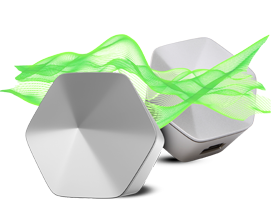 |
Author: Samantha Swarbrick Account Executive, JT Enterprise |
The last few years have seen a huge amount of change for small and medium-sized businesses, especially around processes, applications and digitisation. Business owners have learnt how to be adaptive and agile and as we continue to operate in an uncertain economic climate, that ability to anticipate and respond to challenges and opportunities will continue to be key throughout 2023 .
We’ve put together a list of some of the anticipated challenges for SMEs over the next year.
Increased costs

The cost of living crisis is effecting many consumers and businesses. High inflation levels, increased operational and materials costs have meant small businesses have had to re-evaluate their budgets.
There’s little sign of the economy recovering in the near future, so this will remain a key factor in almost every decision-making process for SMEs in 2023. Assessing the technology you use on a regular basis will help identify where digitisation and automation may help streamline processes and workflows.
Data protection
 Customers are increasing pressure on companies to keep their personal data safe. This isn’t a new trend, but it’s still one of the most critical customer needs for businesses across all industries as cyberattacks and identity theft cases grow.
Customers are increasing pressure on companies to keep their personal data safe. This isn’t a new trend, but it’s still one of the most critical customer needs for businesses across all industries as cyberattacks and identity theft cases grow.
Customer demand for data protection is backed up by increasingly tight regulations surrounding how we handle data. The European Union is looking to make a number of improvements to data protection laws with the Digital Services Act and Digital Markets Act. The UK government is also looking to overhaul their version of GDPR to reflect increased threat levels. Taking a proactive approach to protecting and securing your business-critical information, online and on your network with a 3rd party provider is highly recommended.
The changing ways we work
 How we work has changed significantly over the last few years, and there’s no going back to the way things used to be. We’re seeing more businesses of all sizes using Unified Communications to support their hybrid working and flexible workspaces as team collaboration is the most important way to improve business processes and culture.
How we work has changed significantly over the last few years, and there’s no going back to the way things used to be. We’re seeing more businesses of all sizes using Unified Communications to support their hybrid working and flexible workspaces as team collaboration is the most important way to improve business processes and culture.
With the current job market being full of candidates looking for a better employee experience, businesses need to adapt to modern ways of working to ensure they can not only hire new talent but retain their best employees. This includes checking in with employees at regular intervals to see if they have everything they need to do their job and asking how employers can make improvements.
Flexibility is now the name of the game, and businesses need to keep up. They’ll need to adopt smarter technologies that enable collaboration and boost productivity with remote and hybrid teams.
Increasing security threats
 SMEs are increasingly adopting new vendors and software as they digitise more processes. This has made cybersecurity more complex than ever and cyberattacks are rising. Did you know that 46% of all cyber breaches impact businesses with fewer than 1,000 employees?
SMEs are increasingly adopting new vendors and software as they digitise more processes. This has made cybersecurity more complex than ever and cyberattacks are rising. Did you know that 46% of all cyber breaches impact businesses with fewer than 1,000 employees?
Regularly reviewing your security against an ever-changing threat landscape and identifying gaps that make your business vulnerable to attacks is imperative. The first step to securing your business is a cybersecurity assessment that considers your own security compliance, your employees, potential risks and the risks of your vendors and partners.
Saying SMEs need to monitor their data for potential security breaches is easy, but putting that advice into practice can be more complex. We offer JT Cyber Protection to help you keep track of your digital presence and protect your business from threats.
Of course, the best way to deal with threats to your business and your data is to prevent them in the first place with our Managed and Automated Security Operations Centre (SOC) Services. All JT Managed Security products offer a proactive approach to protecting and securing your business-critical information, online and on your network, using a range of dedicated Cybersecurity Services.
How business health checks will help in 2023
Business health checks are crucial to ensure everything is running as it should. They’re designed to help you gain a better understanding of your company’s strengths and vulnerabilities, as well as identify areas for growth.
You can gauge your organisation’s preparedness for change by attending our business health check. This is crucial during times of change and could help you identify money-saving opportunities.
Business health checks also help organisations prepare for the future. They can uncover ways to improve connectivity, data storage, protect so your business, and save you money.
To learn more about our business health checks, get in touch with our expert team to learn how JT can help your business in 2023 and beyond.





